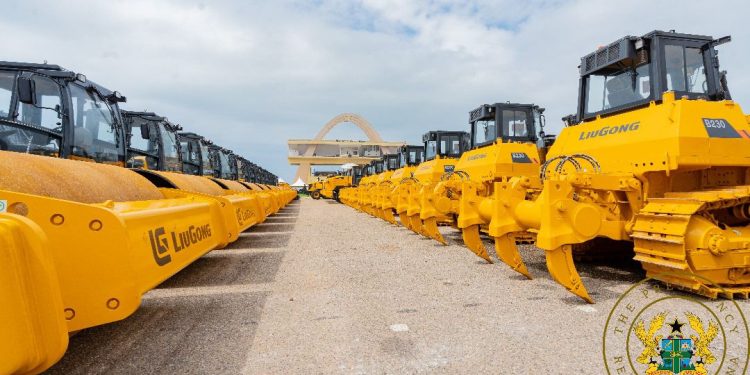The National Democratic Congress (NDC) flagbearer, John Dramani Mahama, has criticised the government’s District Road Improvement Programme (DRIP), claiming it was not well thought through.
The DRIP is designed to empower Metropolitan, Municipal, and District Assemblies (MMDAs) with the necessary resources and equipment to rehabilitate and maintain roads within their areas.
This initiative aligns with the government’s commitment to decentralization, providing local authorities with the tools to effect meaningful change.
However, during his address at the Bono Regional House of Chiefs as part of his campaign tour, the NDC flagbearer argued that the initiative was hastily implemented by the ruling party to score political points.
“The DRIP initiative was not well thought through and this is evident in a video I saw on how the equipment was transported to the various localities.
“The government should have gotten payloaders to ensure an appropriate transportation of the equipment. Apart from that, some of the machines have been left unused because there are no skilled workers to operate them.”
Background
President Akufo-Addo on Wednesday, July 31, launched the District Road Improvement Programme (DRIP) and commissioned essential equipment at Black Star Square.
The event, aimed at enhancing the country’s road networks, marks a pivotal milestone in the government’s ongoing efforts to decentralize development and improve the quality of life for Ghanaians.
In his address, President Akufo-Addo highlighted the critical role of road infrastructure in economic growth and social development. “Roads connect communities, facilitate trade, enable access to education and healthcare, and ultimately improve the quality of life for the citizenry,” he stated.
Despite significant progress in recent years, the President acknowledged that many district roads remain in poor condition, impeding economic activities and development.
DRIP includes a comprehensive fleet of 2,240 pieces of equipment, including motor graders, backhoes, rollers, wheel loaders, bulldozers, tipper trucks, concrete mixers, water tankers, and low beds.
These machines are expected to play a crucial role in the nationwide improvement of road infrastructure.


